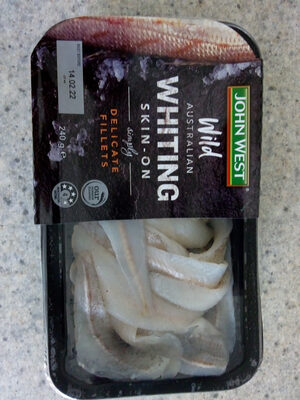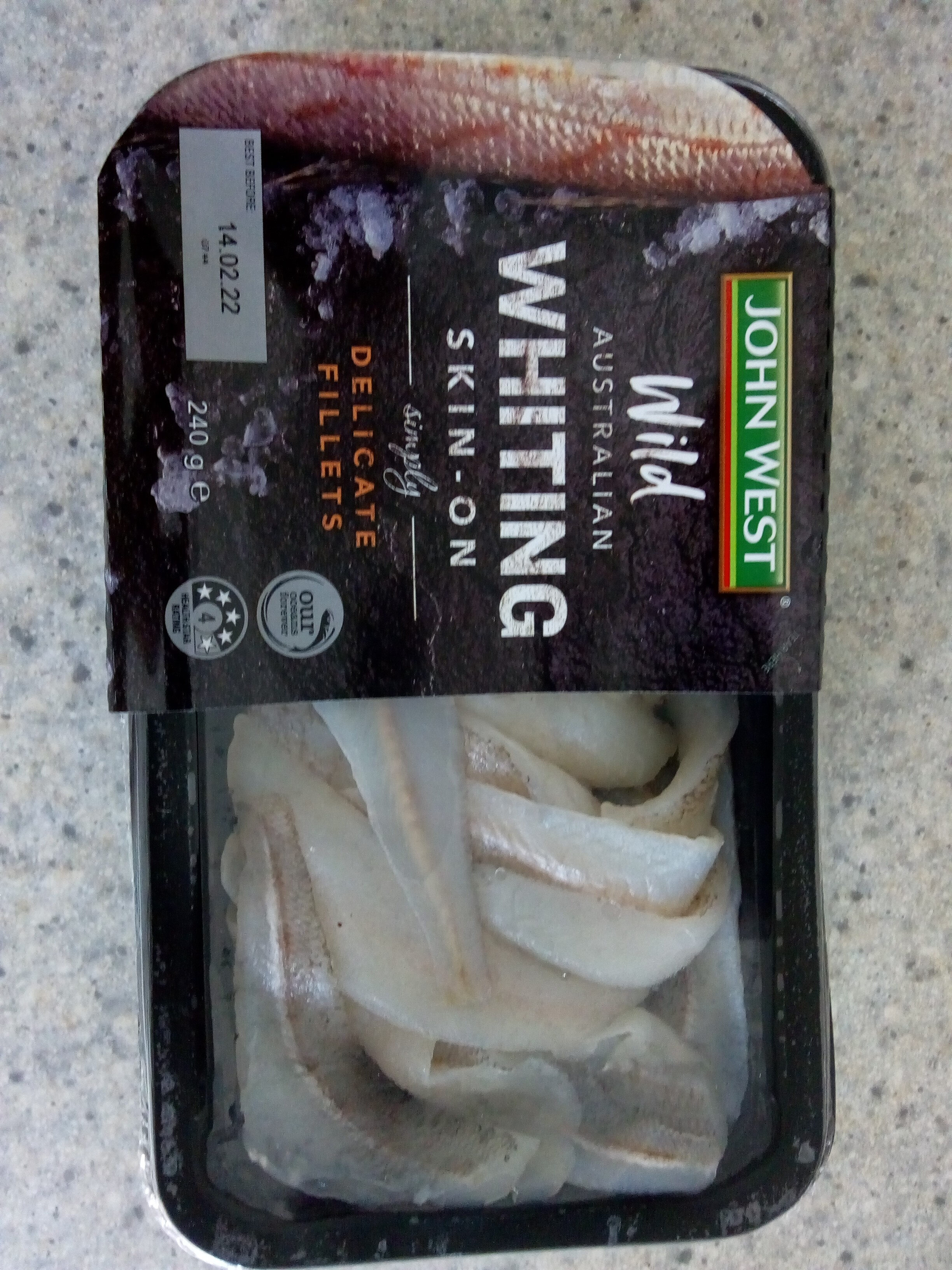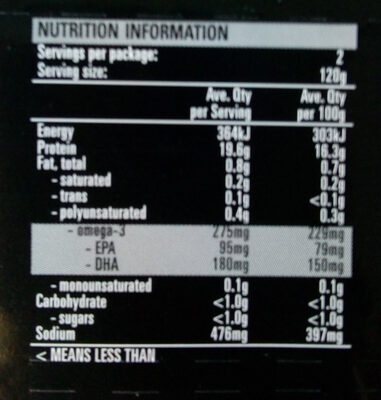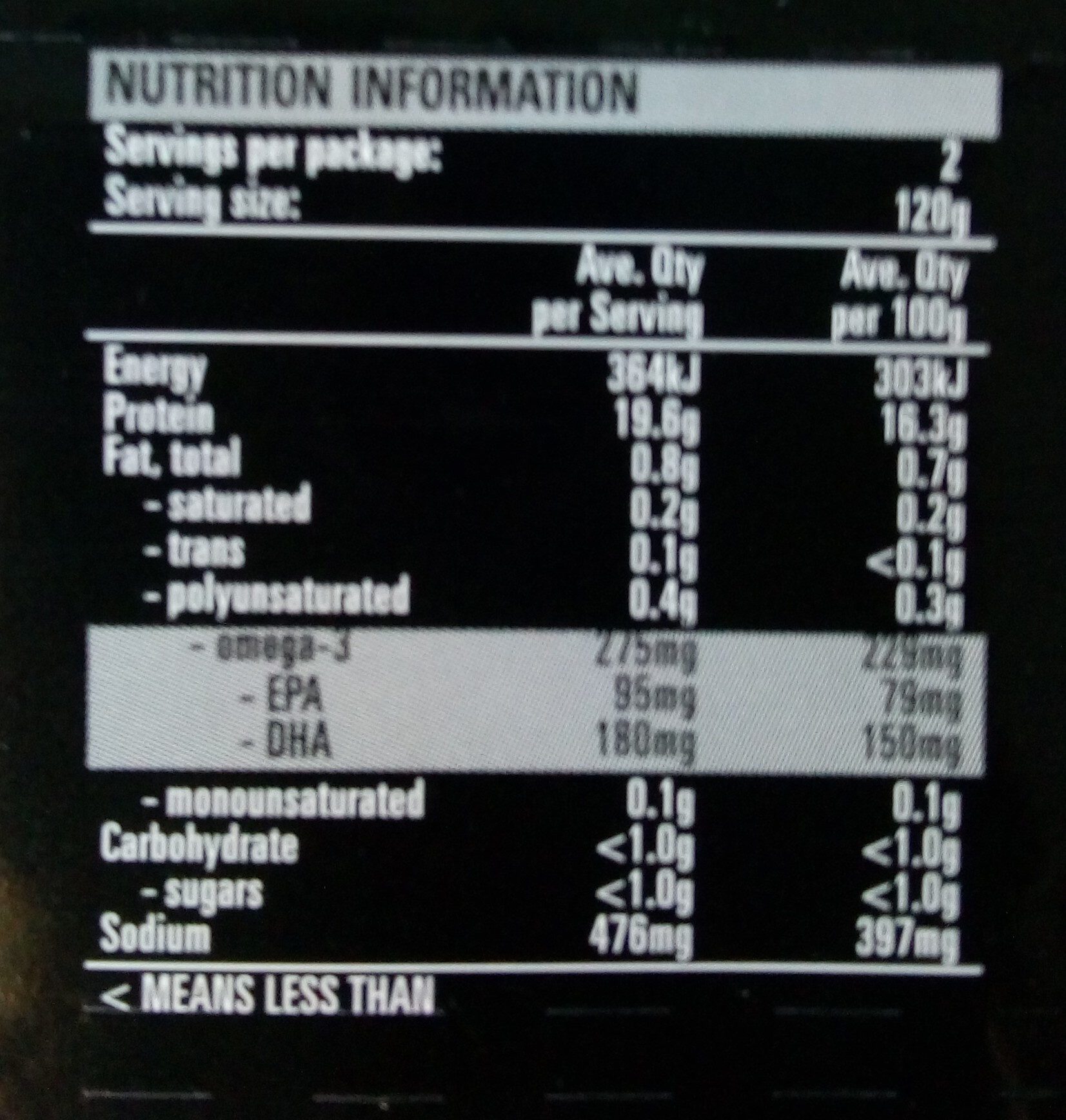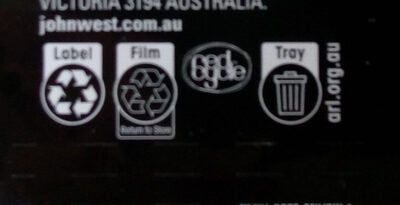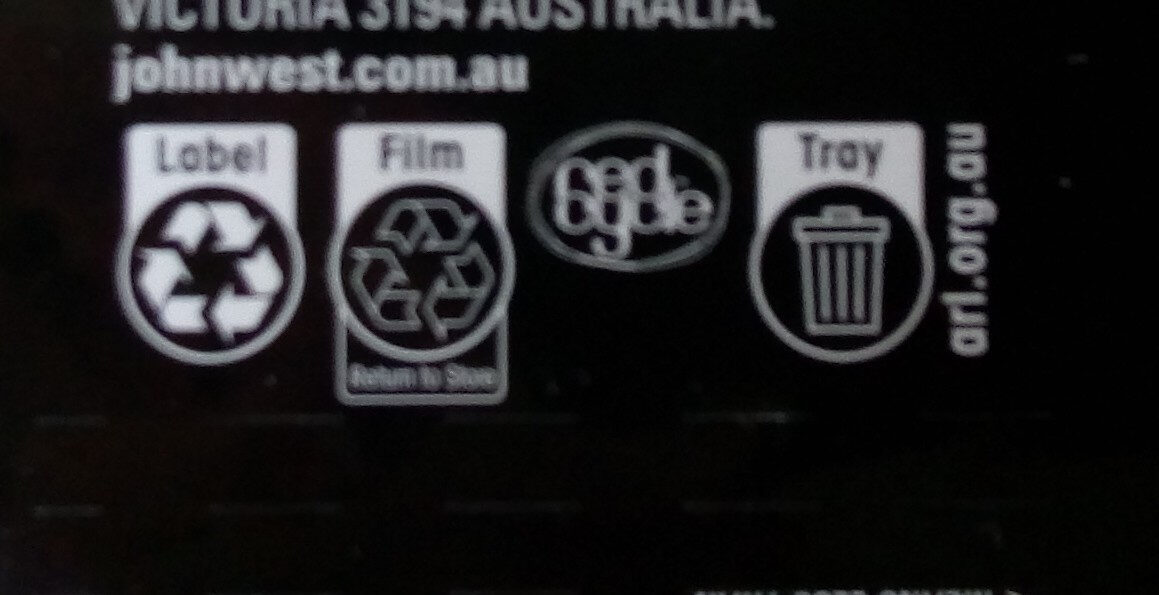Whiting Skin-On - John West - 240g
Barcode: 9300462130729 (EAN / EAN-13)
Quantity: 240g
Packaging: Plastic
Brands: John West
Categories: Seafood, Fishes and their products, Fishes
Labels, certifications, awards:
Health Star Rating, Health Star Rating 4
Origin of ingredients: Australia
Countries where sold: Australia
Matching with your preferences
Report a problem
Data sources
Product added on by trolley
Last edit of product page on by packbot.
Product page also edited by ecoscore-impact-estimator, openfoodfacts-contributors, roboto-app.
If the data is incomplete or incorrect, you can complete or correct it by editing this page.
